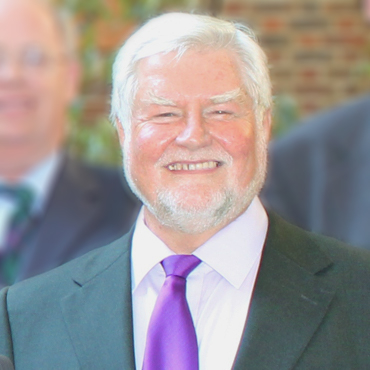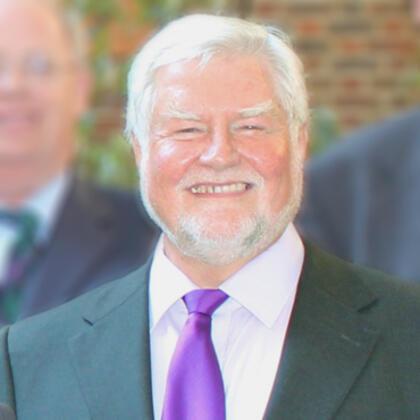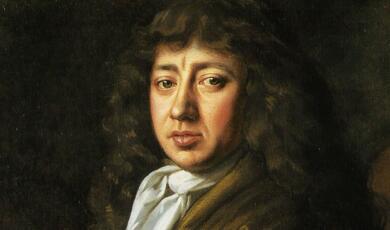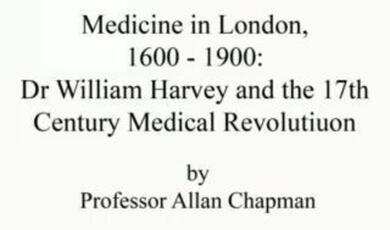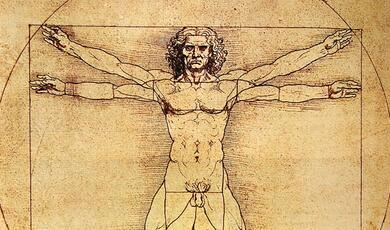Actors and Acting
Share
- Details
- Transcript
- Audio
- Downloads
- Extra Reading
The roots of performance in ritual and shamanism, including extremes of dissociation such as 'possession syndrome'. This lecture will examine the personality and stresses of actors (issues such as exhibitionism, charisma and identity confusion). The two main approaches to actor training (imaginative and technical) will be compared as to their strengths and weaknesses.
Download Transcript
THE PSYCHOLOGY OF PERFORMANCE
ACTORS AND ACTING
Dr Glenn D Wilson
(1)
Theatrical performance derives partly from ritual - the stereotyped repetition of activity for magical effect. The origins of such activities may be accidental or forgotten but they have become invested with important social or religious meaning (e.g. smoking a 'peace pipe', or breaking bread in communion). The functions are various but include celebrating victories, remembering disasters, marking important social occasions (weddings, funerals), appeasing deities (rain dances), contacting ancestors (seances), or just expanding consciousness (fire walking, sex orgies). Among the components of ritual ceremony that have made their way into modern performance are chanting and mass singing, coordinated instrumental playing, formation marching and dancing, masks and elaborate costumes, and special effects like the use of fire, totems and scenery.
In tribal societies, ritual merges with performance in that there is often a division between performers (priests, shamans) and audience (congregation). The performers assume roles and imitate gods and animals in order to mystify, educate and entertain. Shamans are witch-doctors who specialise in trance-travelling in order to communicate with the supernatural order (gods, ancestors, etc) and deliver benefits to ordinary mortals. The practice is widespread throughout Asia, Africa and South America and is of ancient origin.
(2)
In Western society, shamanism seems to have split three ways:
(a) Doctors, psychotherapists and practitioners of 'alternative' medicine perform the healing role of the witch-doctors.
(b) Evangelists and priests supervise contact with the supernatural order.
(c) Pop idols, actors and singers crystallise powerful feelings such as sex and rebellion.
It is the third group that concerns us here.
Brian Bates, an anthropologist at Sussex University, is among those who argue that actors perform the role of shamans for our society - bringing a world of imagination and fantasy (an alternative reality) into believable existence. According to Bates, actors are 'psychic illusionists', who harness powers bordering on the paranormal to transform mundane reality into the 'supernatural'. Support for this viewpoint comes from studies revealing high levels of superstitious behaviour among actors and of personality links between dissociative behaviours such as sleepwalking with theatrical interests.
(3)
A particular kind of magic that performers need to have at their disposal is charisma. This refers to 'the power of presence' or 'charm'. Charisma depends upon physical traits such as attractiveness, strength and voice and personality traits like assertiveness, zaniness and uniqueness. However, it may also derive from social or political position - some otherwise unprepossessing individuals may still be charismatic as a result of their importance within the social hierarchy (Henry Kissinger, Woody Allen, Bill Gates). Simple familiarity also contributes to charisma (c.f. weather forecasters, game-show bimbos). Certainly it is not necessary to be likeable; people who are cold, surly and abrasive (Humphrey Bogart, Margaret Thatcher) or even completely psychopathic (e.g. serial killers like Ted Bundy) often project great charisma and attract opposite sex fans. Perhaps most central to charisma is self-assurance (defined by Bates as 'the strength to resist the need to be liked').
(4)
An actor's name may be part of their charisma. Many stars find it important to change their name from one that is weak or risible to something more macho (short and clipped like Brad, Kirk or Clark) or soft, rounded and feminine (like Marilyn or Angelina). It is hard to imagine that John Wayne would have enjoyed quite so much success as a Western hero if he had retained his birth name of Marion Morrison (though Diana Dors might have got by as Diana Fluck). After all, names that are unusual, once learned, are harder to forget (Yul Brynner). Gimmicky names (Symbol: The Artist Formerly Known as Prince), alliterative names (Charlotte Church) and those that evoke powerful imagery or emotion (Sid Vicious, Judas Priest) work on the same principle. Another trick is to recycle a name that rings distant bell, however distant (Rose Marie). Englebert Humperdinck had little success singing under the rather commonplace name of Jerry Dorsey. Apparently, a name can make or break a performer.
(5)
For actors to succeed in their profession they need to call up a process ofidentification in their audience. This means that the audience are persuaded to project themselves into the head of the characters being portrayed, seeing things from their point of view and sharing their thoughts and feelings. They may identify with one particular character in a play more than others (usually the one most like themselves, or the one they most like) but they need some degree of empathy with all the others as well. Those with whom we identify do not have to be virtuous - villains are often very appealing (perhaps because we can relate to the villain in ourselves). They do, however, need to be believable. We may have difficulty empathising with a 5ft tenor playing the hero Radames in Aidaor a 20 stone soprano supposedly dying of consumption.
(6)
It is useful to distinguish two major approaches to actor training and role preparation - which often seem to be in opposition to one another. These are the imaginative approach typified by 'The Method' of Lee Strasberg and his New York Actor's Studio, and the technical approach typified by Laurence Olivier and the British director Tyrone Guthrie. The main difference concerns the focus of attention of the performer - is it internal(immersed in the thoughts and feelings of the character), or external(located with the audience looking back at oneself). George Burns once said, 'the prime virtue of an actor is sincerity - if he can fake that he's made'. This rather nicely encapsulates both theories. The imaginative school seeks the grail of true sincerity, while the technical actor seeks ways of persuading the audience that he is sincere (regardless of what he feels inside).
(7)
The imaginative approach is often attributed to the Russian director Constantin Stanislavski, who wrote a very influential book called An Actor Prepares (1936). Stanislavski argued that actors needed to make use ofemotional memory, recalling incidents from their own past lives which relate closely enough to the situation their character finds themselves in that appropriate emotions can be carried over. Glenda Jackson described this strategy (jokingly) as follows: 'If I have to cry, I think of my sex life; If I want to laugh, I think of my sex life'. Strasberg's Method stresses psychological analysis of the character, leading to naturalistic, often intense and brooding, interpretations of a role. This approach has proved specially applicable to American avant-garde theatre and the intimate art of film and TV acting, where micro-expressions are often sufficient. James Dean, Marlon Brando, Rod Steiger, Marilyn Monroe, and Al Pacino are among the famous Method exponents.
(8)
The technical approach grew out of the classical stage in France and Britain, where a strong voice and larger gestures might be needed to impress an audience. This school takes the position that it doesn't matter what the actor is feeling inside, provided they can trigger appropriate passions in their audience through voice, posture and gesture. 'Losing oneself in the part' may interfere with this aim because basic stagecraft goes out the window. Technical actors note that many important aspects of acting have no connection with reality (e.g. being heard clearly in the back of an auditorium, which might involve 'cheating out', crossing downstage, or positioning oneself relative to other performers so as to enhance sightlines or promote picturisation - an artistic balance as viewed from the audience). In any case, realism is not necessarily valued because theatre is supposed to transform the mundane into something much grander. It is widely agreed that the 'external' approach is particularly geared toward the classic stage, opera and epic films.
(9)
Among the techniques that can be acquired are feedback (making use of criticism, mirrors and video to 'see oneself as others see you'), andmodelling (observing the accents and body language of suitable models in order to construct a character). A famous instance of the latter is Anthony Sher's Richard III, which (as detailed in his book The Year of the King) was modelled on serial killers and predatory insects. Peter Sellers combined the somewhat comical German accent of an on-set technician with observation of the neurological condition called 'alien hand' to create Dr Strangelove. A knowledge of personality theory may be helpful to an actor (e.g. knowing how various personality traits cohere) as well as psychoanalysis (e.g. representing repressed sexuality by walking with clenched buttocks). In the film Dead Ringers, Jeremy Irons played two twins, one highly successful and dominant (Elliot) and the other sensitive and submissive (Beverly). The switch that he used to distinguish the two characterisations was that of walking on his heels (Elliot) versus walking on his toes (Beverly). The former yielded an upright, expansive stance, while the latter produced a forward-leaning, apologetic demeanour.
(10)
Some element of each main approach is probably necessary for effective performance. The argument almost comes down to the question of which comes naturally and which requires training. Probably it is the technical aspects (voice projection, stagecraft, etc) that most need to be studied. We have experience in mind-reading (empathy) from childhood. Certainly it is true that feelings during performance are of no use unless communicated to the audience and this communication cannot necessarily be taken for granted. Improvisation and character analysis, two famous derivatives of the imaginative approach, are perhaps most useful in early preparation stages of performance rather than ultimate delivery.
Excessive displays of emotion can actually interfere with audience empathy. If an actor is too demonstrative the audience may 'stop travelling'. Rather than engage in self-indulgent emotions, the job of the actor is sometimes simply to provide a 'blank canvass' onto which the audience can project their feelings. When Noel Coward was directing Nude with a Violin on Broadway, he was approached by an earnest young actor asking for an in-depth analysis of the part he was playing. 'My dear boy', said Coward, 'never mind the motivation, just say the lines and don't trip over the furniture'. Equally, excessive technique can be intrusive - some claim that in watching Olivier's Shakespearian performances (e.g. the film of Othello) they find themselves being aware of 'a great actor going through his paces' rather than the plight of the character.
(11)
What sort of people are actors? Their public image is somewhat negative (especially as perceived by actors themselves). If true, this may be motivated by envy as much as anything else. (13) Research shows that, compared with other performers, actors are typically extravert, adventurous and expressive in personality. The negative construction sometimes put on this is that they are exhibitionists, with an immature need to 'show off'. Freudians interpret this as childhood deprivation resulting in attention-seeking as a desire for compensation. Social learning theorists look to early reinforcement for theatrical behaviour (e.g. parents applauding the 'party piece'). Of course, these explanations are directly opposite, but in any case, behaviour genetic analysis suggests they may both be wrong - exhibitionism as a personality trait seems to be largely constitutional.
(12)
Actors have often been accused of being neurotics attempting self-treatment. This rings a bell especially with those that write their own material, revealing repetitive themes. Sylvester Stallone - the small man who becomes a hero (Rocky, Rambo). Woody Allen - the geek that impresses beautiful women with his wit (Annie, Play it Again Sam). John Cleese - the uptight Englishman who would like to break loose from the shackles of his background (Clockwise, A Fish Called Wanda). Is it possible that Danny La Rue or David Walliams have cross-dressing interests that find an outlet on the stage?
We need to resist the temptation to pathologise other people unnecessarily, especially those whose life-style we almost certainly envy. No doubt that performers do crave love, applause and recognition. Don't we all? These are markers of occupational success as well as personal needs and might apply to chartered accountants as much as actors. Although there is some support for the idea that comedians are susceptible to depression and rock singers are prone to addiction, actors are just as mentally healthy as the rest of us (rates of depression and suicide are not elevated compared with the general population). Indeed, when successful, they are among the most 'self-actualised' people in the world.
(13)
Some say actors are engaged in a search for self-identity that was never properly established during development. Playing a role is said to provide that missing identity. Indeed, Peter Sellers was quoted as saying that he didn't know who he was till he put on an accent and adopted a funny walk. Others argue the reverse - that acting creates role confusion. For example, there is research to that undercover cops and journalists, whose life may depend on convincing the criminals or terrorists they have infiltrated, suffer a phenomenon called re-entry strain when they come to return to their ordinary lives. Stars often have roles imposed upon them which they are unable to escape in real life because they have been chosen to crystallise some 'type' (Marilyn Monroe - the simpering blonde, John Wayne - the tough guy, James Dean - teenage rebel). These stereotypes do not necessary correspond to their real life persona. Soap stars complain that people often treat them as though they are the character they portray, perhaps even attacking them for some transgression in a recent episode.
(14)
A striking form of identity confusion occasionally seen in actors is that called possession syndrome. Some actors identify with the character they are playing so strongly that they are taken over by it. Playing the role of Vivien Leigh in a TV dramatisation of her life, actress Mel Martin said she could not escape Vivien, and heard her voice telling her how to react. Charlton Heston said he was sometimes 'surprised' by the way his character Queeg behaved in the Caine Mutiny, as if he had lost control of him. Daniel Day-Lewis once fled the stage in a performance of Hamlet because he saw the ghost of his own father (the poet C. Day-Lewis). A particularly famous case was that of a Brazilian soap star who murdered his on-screen girl-friend because she jilted him in the storyline. This surely is 'method' acting taken to an unhealthy extreme.
References
See Wilson, G.D. (2002) Psychology for Performing Artists (Second Edition). Whurr: London (now part of John Wiley).
©Dr Glenn D Wilson, Gresham College, 12 March 2008
Part of:
This event was on Wed, 12 Mar 2008
Support Gresham
Gresham College has offered an outstanding education to the public free of charge for over 400 years. Today, Gresham plays an important role in fostering a love of learning and a greater understanding of ourselves and the world around us. Your donation will help to widen our reach and to broaden our audience, allowing more people to benefit from a high-quality education from some of the brightest minds.


 Login
Login
